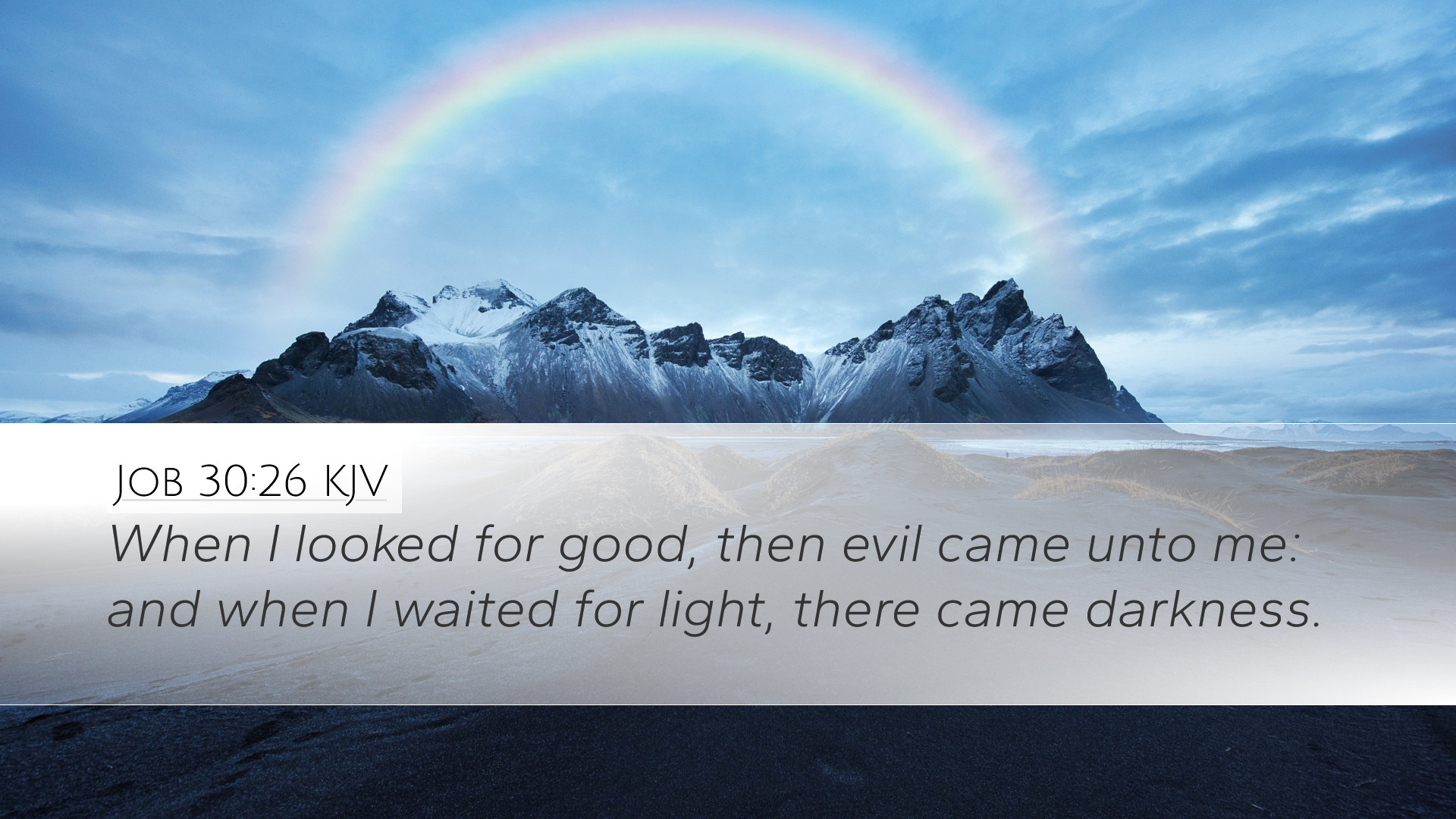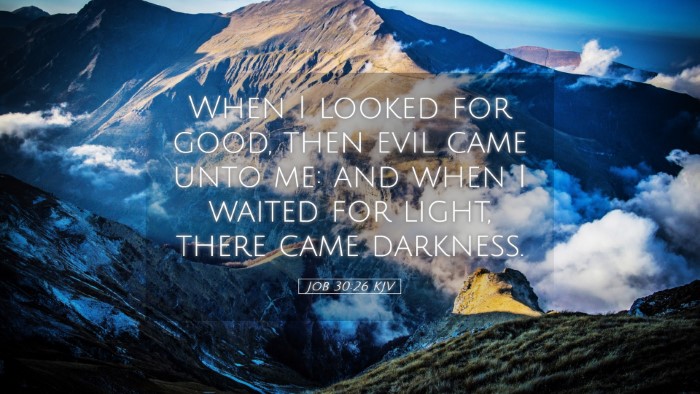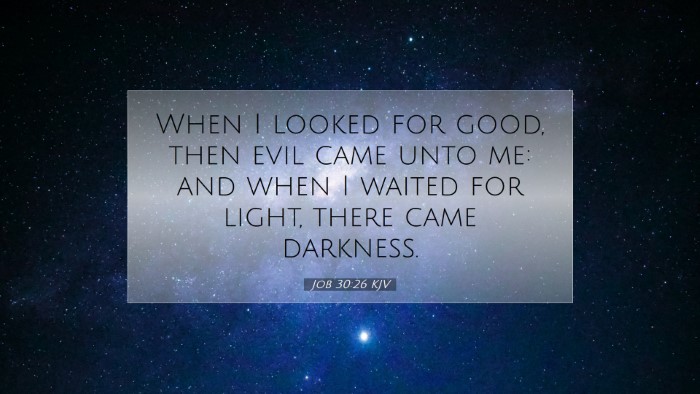Commentary on Job 30:26
Introduction
Job 30:26 states: "But when I hoped for good, evil came; and when I waited for light, there came darkness." This verse encapsulates Job's profound despair and serves as a poignant reflection on the trials that beset the faithful. Through this commentary, we will explore insights from publicly available commentaries such as those by Matthew Henry, Albert Barnes, and Adam Clarke to unpack the theological and practical implications of this verse.
Contextual Background
In the preceding chapters, Job has undergone severe trials, losing his wealth, health, and family. His friends, attempting to comfort him, only exacerbate his suffering by suggesting that his plight is due to sin. Job's lament in this verse illustrates a critical point in his struggle where he previously held hope for restoration but found himself in deeper desolation.
Understanding the Text: Analysis of Key Phrases
The Hope for Good
Matthew Henry comments on the theme of hope in the midst of suffering. Job expresses a genuine expectation for relief and restoration. His longing for good is not merely a desire for personal comfort but is deeply rooted in his faith in God. Henry emphasizes that such hope is often a precursor to disappointment, especially in the lives of those facing overwhelming trials.
The Arrival of Evil
Albert Barnes notes that "evil" in this context refers not solely to moral evil but also to calamity and suffering. Job experienced an unexpected turn where hope was met with adversity. Barnes highlights how this reflects a universal experience; the faithful often encounter trials that seem to contradict the assurance of divine favor.
Longing for Light
Adam Clarke provides a rich examination of what "light" symbolizes for Job. In biblical literature, light frequently represents knowledge, joy, and divine presence. Clarke points out that Job’s yearning for light signifies his desire for clarity and understanding in his affliction. This longing is not just for physical illumination but for spiritual insight that could make sense of his suffering.
Confrontation with Darkness
This verse closes with a stark reference to "darkness." According to Henry, darkness symbolizes despair, confusion, and absence of God's favor. Job’s experience resonates with anyone who has felt abandoned in their trials. The juxtaposition of hope and despair reveals a profound theological tension; it compels believers to confront the reality of faith in the face of suffering.
Theological Implications
Job 30:26 invites theological reflection on the nature of suffering and divine justice. It engages critical questions regarding the relationship between human suffering and God’s sovereignty. How does one maintain hope when circumstances seem contradictory? The faithful, as Job exemplifies, wrestle with these questions throughout their spiritual journeys.
The Principle of Faith amidst Suffering
Job’s hope for good illustrates the essential nature of faith. Despite his situation, he remains hopeful for God's intervention. Albert Barnes suggests that such hope should inspire believers to persevere in faith, trusting that greater understanding and restoration may come in God’s timing.
The Reality of Human Experience
Henry argues that Job speaks for many when he expresses the common plight of humanity, grappling with hope and despair. It reflects a truth that resonates with believers across ages; life is often marked by defeats even when one clings to faith.
Pastoral Applications
For pastors and spiritual leaders, Job 30:26 offers practical wisdom in ministering to those in suffering. It reminds leaders to validate the feelings of those struggling to maintain hope amidst trials. Here are key applications drawn from this verse:
-
Emotional Validation:
Encourage individuals to voice their struggles, acknowledging that feeling hopeless is a part of the human experience.
-
Supporting the Journey:
Implement pastoral care that reflects understanding, providing support that helps congregants navigate their fears and hopes.
-
Pointing to God's Presence:
Help the faithful see that even in darkness, God is with them. Use scripture to reassure them of God's eternal promises.
Conclusion
Job 30:26 serves as a profound reminder of the complexities of faith, particularly in times of suffering. The combined insights of Matthew Henry, Albert Barnes, and Adam Clarke reveal a multilayered understanding of the human condition in relation to divine hope. As believers navigate their journeys, this verse encourages them to hold onto hope, even when faced with the shadows of despair.


